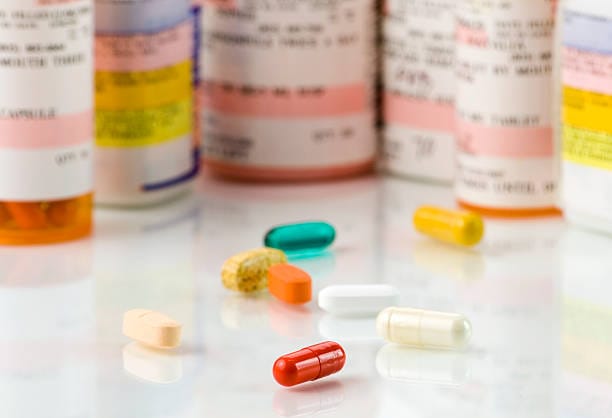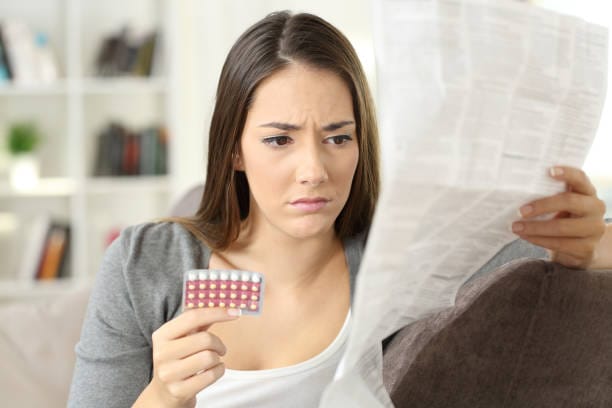- Aeviva
- Posts
- Which Drugs Should Not Be Taken with Alcohol and Why?
Which Drugs Should Not Be Taken with Alcohol and Why?
These five medications should never be combined with alcohol. Find out why.

Ever wondered why your prescription often comes with a warning to avoid alcohol? Mixing alcohol with certain medications doesn’t just reduce the drug’s effectiveness—it can lead to dangerous, even life-threatening, side effects.
From impaired breathing to severe nausea, the combination of alcohol with specific drugs amplifies their risks. In this article, we’ll dive into five medications you should never mix with alcohol, the science behind their interactions, and how to stay safe.

Science Links Mitochondria & Muscle Strength
As we age, our muscles naturally lose mass, strength, and functionality, which can lead to fatigue and weakness beginning as early as our 30s. Recent studies indicate that our mitochondria—the cellular powerhouses that generate 90% of our energy—play a crucial role in this decline, contributing to reduced muscle function as we age.
A new way to support and improve muscle health as we age, Mitopure® by Timeline is clinically shown to meaningfully boost our mitochondrial health to improve muscle strength and endurance, without any change in exercise required.
Why Alcohol Interacts with Medications
Alcohol affects how your body processes medications, often overwhelming your liver and altering how drugs are absorbed. This can lead to:
Increased side effects, like dizziness or drowsiness.
Reduced effectiveness of the medication.
Dangerous reactions, such as respiratory depression or internal bleeding.
💡 Fact: Studies show that 25% of medication users unknowingly mix their prescriptions with alcohol, increasing the risk of adverse effects.

The Medications You Should Never Mix with Alcohol
1. Benzodiazepines (e.g., Xanax, Valium)
What Happens: Both alcohol and benzodiazepines depress your central nervous system (CNS), amplifying effects like extreme drowsiness, dizziness, and impaired motor skills. Severe cases can result in respiratory failure.
Example Interaction: Mixing alcohol with Xanax increases sedation by up to 30%, raising overdose risks.
2. Painkillers (Opioids like Oxycodone, Hydrocodone)
What Happens: Alcohol and opioids combined slow your breathing to dangerous levels, increasing the likelihood of respiratory failure and overdose.
Key Risk: The CDC reports that 22% of opioid-related deaths involve alcohol.
3. Antidepressants (e.g., Prozac, Zoloft)
What Happens: Alcohol can counteract the benefits of antidepressants, worsening symptoms like depression and anxiety. In some cases, it triggers serotonin syndrome—a potentially fatal condition.
Did You Know? A Psychopharmacology study found alcohol raises the risk of antidepressant side effects by up to 40%.
4. Antibiotics (e.g., Metronidazole, Tinidazole)
What Happens: These antibiotics can cause a disulfiram-like reaction when mixed with alcohol, leading to nausea, vomiting, rapid heart rate, and flushing.
Real Impact: According to research, 8 out of 10 patients who drink alcohol while taking metronidazole experience these symptoms.
5. Blood Thinners (e.g., Warfarin, Aspirin)
What Happens: Alcohol thins your blood further, increasing the risk of internal bleeding. Long-term alcohol use also disrupts liver function, making it harder for the body to metabolize blood thinners.
Fact: Moderate alcohol intake can boost the risk of gastrointestinal bleeding by up to 50%.
Staying Safe
Always read your prescription labels and consult your doctor or pharmacist before drinking alcohol while on medication. If you’re unsure, it’s best to avoid alcohol altogether during your treatment.
💡 Tip: Use tools like drug interaction checkers or keep your doctor informed about your drinking habits to avoid unintentional risks. Website example
Interactive Section: True or False Quiz

Test your knowledge—can you guess which statements are true?
Mixing alcohol with benzodiazepines increases sedation by up to 30%.
Antibiotics like metronidazole don’t cause side effects when taken with alcohol.
Alcohol can reduce the effectiveness of antidepressants and worsen symptoms.
Blood thinners and alcohol are a safe combination in small amounts.
Answers:
True ✅
False ❌
True ✅
False ❌
The #1 App That Helps You Fall Asleep In Minutes
BetterSleep, the 5 star app that focuses on helping users sleep better and feel better daily.
Build and layer a unique personalized mix from over 300 unique sounds such as: green noise, ocean waves, heavy rain, arctic storms or even background bustle in a city cafe! Use sound science to send yourself to sleep and improve your restlessness.
By building your perfect dreamy soundscape and watch your sleep and your mornings improve in just 7 days!
Mixing alcohol with certain medications can have serious consequences, from minor discomfort to life-threatening reactions. Understanding these interactions empowers you to make safer choices. Always consult your doctor or pharmacist before combining alcohol with any prescription or over-the-counter drug.
/
Take-Home Message
Alcohol can amplify medication side effects, including respiratory depression, dizziness, and nausea.
Never mix alcohol with benzodiazepines, opioids, antidepressants, antibiotics (metronidazole), or blood thinners.
Common risks include respiratory failure, serotonin syndrome, and internal bleeding.
Always consult your doctor before drinking alcohol while on any medication.
Staying informed and cautious can save lives.



Reply